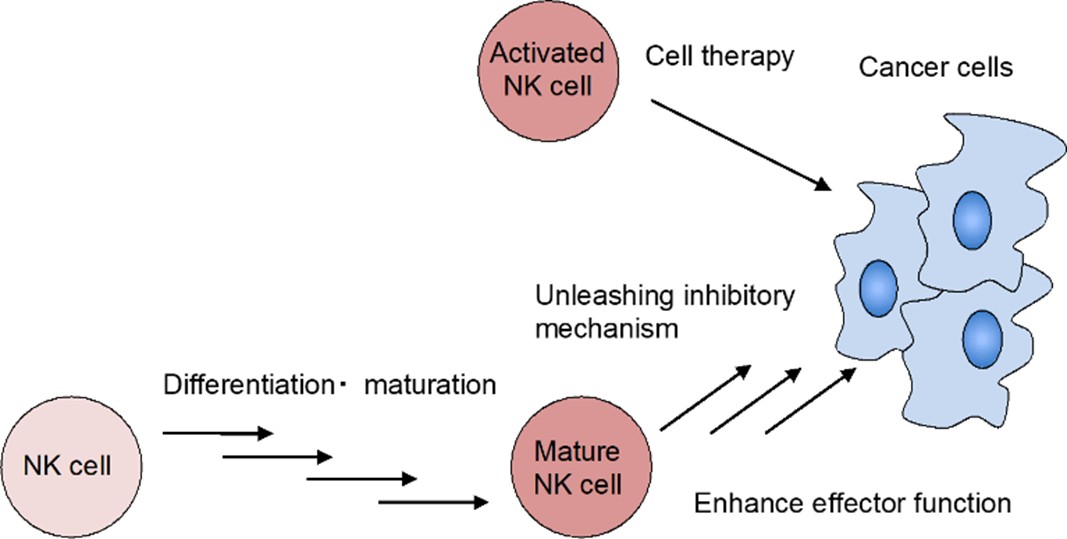Section of Host Defences, Division of Bioscience
Unit
Outline of the research
Our research focuses on understanding the biological defence system including immune response, inflammation, and cellular metabolism, and its role in pathological diseases. We mainly study the role of the biological defence system in the protection or progression of diseases, and the effects of natural medicines including Kampo medicines on the biological defence system.
Research Projects
We will address various research themes related to biological defense mechanisms:
I) Elucidation of the role of cancer immune response and its application to drug discovery
1.Research on the biology of natural killer (NK) cells and their role in cancer immune response
2.Research on the role of inflammatory immune response in controlling cancer progression
3.Research on the mechanisms of immune evasion by cancer cells in the cancer immunoediting process
4.Research on the development of novel drugs to enhance the immunogenicity of cancer cells
II) Elucidation and control of cancer proliferation and metastasis mechanisms
1.Research on the biology of cancer proliferation and metastasis
2.Research on in vivo real-time imaging in cancer models
3.Research on targeting the cancer microenvironment for metastasis control
III) Research on Japanese and Chinese herbal medicines and immunity
1.Research on the control of immune diseases (cancer, allergies, inflammation) using natural medicines
2.Research on the combined effects of cancer therapy and Kampo medicines

Pharmacological targeting of NK cells and other Immune cells to control cancer progression











